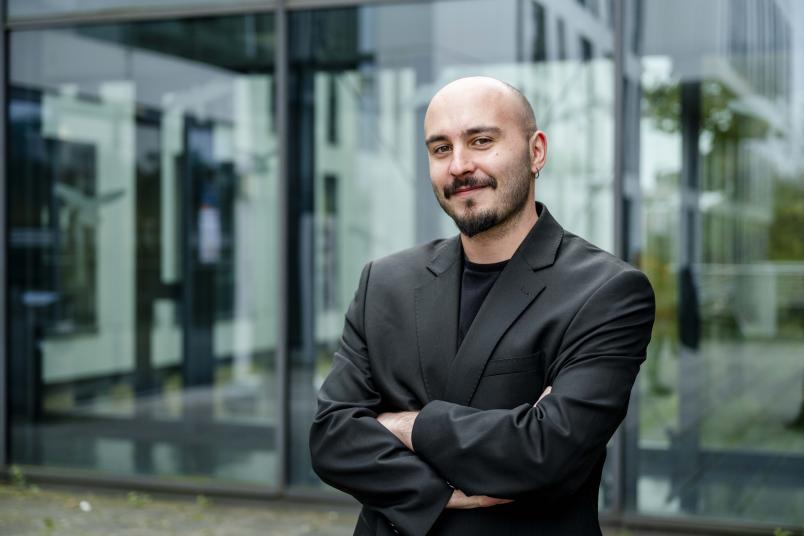
Nikolaos Tzouras is a Humboldt Fellow in Chemistry at Ruhr University Bochum.
Interview
“It makes me proud when other scientists recognize my work”
The support of the right mentors, a determination to achieve goals and a passion for his discipline helped Dr. Nikolaos Tzouras to overcome setbacks and hurdles on the way to his current position.
As an Alexander von Humboldt Fellowship holder, Dr. Nikolaos Tzouras is hosted by Professor Lukas Gooßen’s research group at the Faculty of Chemistry at Ruhr University Bochum. In our interview, he describes his journey from Greece via Belgium to Germany.
Dr. Tzouras, what are you proud of?
It makes me proud when other scientists, whom I admire myself, recognize my work and tell me that I’m on the right track.
To be honest, there was a time when I thought I couldn’t achieve anything significant in the field of chemistry – especially given the harsh realities researchers face in Greece. It was extremely difficult for me to accept this fate. So I decided to think outside the box and look for opportunities abroad that would help me break out of that system. Small victories in the beginning and the good fortune of meeting the right mentors really motivated me to keep going despite the many challenges and hurdles. In reference to where I started, having achieved a certain level of understanding in chemistry that allows me to perform meaningful and often impactful research, but also receiving recognition for it, is something that I am proud of.
My research
You describe your research in your home country of Greece as challenging. But is there anything you do miss?
Having lived in both Greece and Belgium for extended periods of time, there are things I miss from both countries. There are many aspects of Greece that I don’t miss at all, but I certainly miss my family, friends, the climate and the beauty of the country, the sea, the food and some other typical Greek things. From a professional point of view, I also miss my old colleagues from Athens and the fruitful conversations with my PhD advisor Georgios, which we usually had over drinks. As for Belgium, I miss the beautiful city of Ghent and many of my colleagues. But most of all, I miss the frequent conversations and brainstorming sessions with my PhD advisor Steve Nolan, which gave rise to many projects. Although I still have such conversations with my two PhD advisors, they are unfortunately no longer as frequent.
What is your motivation to go to the lab every day?
My curiosity, the opportunity to be creative and the incredible thrill of making a discovery. Research in chemistry can be extremely challenging, frustrating and grueling for long periods of time. However, there are those rare occasions when you have a hypothesis, test it in the lab and it turns out to be true or even more interesting than you imagined. That feeling of understanding or even predicting how nature will behave is so unique and profound that I can’t get enough of it. Certainly being part of the Humboldt Network provides additional, much-needed motivation and support to keep going.
About the person